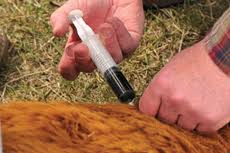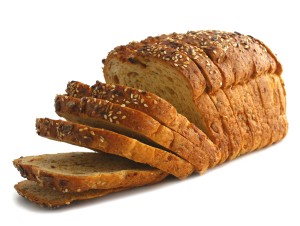Does Eating Farm Animals given Anti-Biotics make you Fat?
 Do antibiotics that US farm animals receive get into our meat and ultimately affect the end user?
Do antibiotics that US farm animals receive get into our meat and ultimately affect the end user?
This is a question that many researchers have asked.
Our family is usually careful about purchasing meats that are organic but occasionally I find myself purchasing a chuck roast that says “natural” fully realizing that natural absolutely means nothing.
The problem with purchasing non organic meats is that US farm animals are confined to tight spaces are dosed with antibiotics. You might think this is to prevent infections among the animals but large corporate farms use antibiotics to fatten their animals before they go to slaughter.
Back in the 1940s, scientists discovered that regular low doses of antibiotics increased “feed efficiency”—that is, they caused animals to put on more weight per pound of feed. No one understood why, but farmers seized on this unexpected benefit. By the 1980s, feed laced with small amounts of the drugs became the norm as US meat production shifted increasingly to factory farms. In 2009, an estimated 80 percent of the antibiotics sold in the United States went to livestock.
Why Do small doses of antibiotics “promote growth” or fatten these Animals?
This year, scientists may have finally figured out why small doses of antibiotics “promote growth,” as the industry puts it: They make subtle changes to what’s known as the “gut microbiome,” the teeming universe populated by billions of microbes that live within the digestive tracts of animals. In recent research, the microbiome has been emerging as a key regulator of health, from immune-related disorders like allergies and asthma to the ability to fight off pathogens.
In an August 2012 study published in Nature, a team of New York University researchers subjected mice to regular low doses of antibiotics—just like cows, pigs, and chickens get on factory farms. The result: After seven weeks, the drugged mice had a different composition of microbiota in their guts than the control group—and they had gained 10 to 15 percent more fat mass.
Why? “Microbes in our gut are able to digest certain carbohydrates that we’re not able to,” says NYU researcher and study coauthor Ilseung Cho. Antibiotics seem to increase those bugs’ ability to break down carbs—and ultimately convert them to body fat. As a result, the antibiotic-fed mice “actually extracted more energy from the same diet” as the control mice, he says. That’s great if you’re trying to fatten a giant barn full of hogs. But what about that two-legged species that’s often exposed to antibiotics?
Interestingly, the NYU team has produced another recent paper looking at just that question. They analyzed data from a UK study in the early ’90s to see if they could find a correlation between antibiotic exposure and kids’ weight. The study involved more than 11,000 kids, about a third of whom had been prescribed antibiotics to treat an infection before the age of six months. The results: The babies who had been exposed to antibiotics had a 22 percent higher chance of being overweight at age three than those who hadn’t (though by age seven the effect had worn off).
Are You Being Exposed to Small levels of antibiotics through the Meat we Eat?
Are we being exposed to tiny levels of antibiotics through residues in the meat we eat—and are they altering our gut flora? It turns out that the Food and Drug Administration maintains tolerance limits for antibiotic residue levels, above which meat isn’t supposed to be released to the public (PDF). But Keeve Nachman, who researches antibiotic use in the meat industry for the Johns Hopkins Center for a Livable Future, said that the FDA sets these limits based solely on research financed and conducted by industry—and it refuses to release the complete data to the public or consider independent research.
A recent European study showed that tiny levels of antibiotics could have an effect on microorganisms. The researchers took some meat, subjected it to antibiotic residues near the US limit, and used a traditional technique to turn it into sausage, inoculating it with lactic-acid-producing bacteria. In normal sausage making, the lactic acid from the starter bacteria spreads through the meat and kills pathogens like E. coli. The researchers found, though, that the antibiotic traces were strong enough to impede the starter bacteria, while still letting the E. coli flourish. In other words, even at very low levels, antibiotics can blast “good” bacteria—and promote deadly germs.
Nachman noted that we simply don’t have sufficient information to tell whether the meat we eat is messing with our gut microbiome. But, he adds, “It’s not an unreasonable suspicion.” If that’s not enough to churn your stomach, there’s also the fact that drug-resistant bugs—which often emerge in antibiotic-dosed livestock on factory farms—are increasingly common: Remember the super-salmonella that caused Cargill to recall 36 million pounds of ground turkey last year? If you haven’t thought about becoming a vegetarian by now…you may be considering it.
Okay, I understand that many of us do not want to give up meat. Here a couple of guidelines.
Tips to protect you and your family from Antibiotic Meat
- Buy Certified Organic Meats or buy from a private farm that you know does not use antibiotics on their animals.
- Use a pre and pro biotic to encourage a poputlation of frendly bacteria in your gut such as Optiflora Pre and Pro. You not only need a freindly bacteria that works but also a pre biotic that feeds the freindly bacteria containing Inulin. Optiflora system provide both of these. When starting out with the pre biotic containing the inulin make sure you start out with only 1/4 or 1/s t. rather than the recommended full teaspoon. You can build up to this. Too much pre biotic will cause flatulance when body is not use to it.
- If you don’t want to go meatless then reduce the amount of meat consuption by using a complete raw proteine for some meals such as Shaklee Energizing NON GMO Protein, Soy Mix, or any of their 180 smoothees, or their whey smoothee
Reember you Immune system starts in your Gut..so take care of it.

